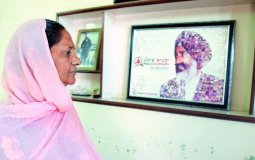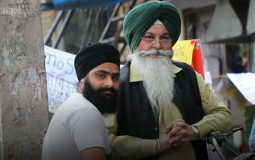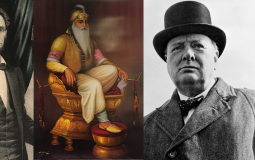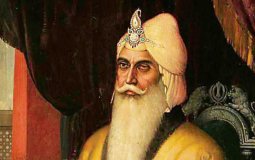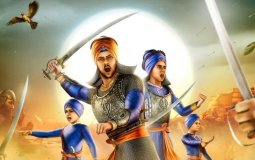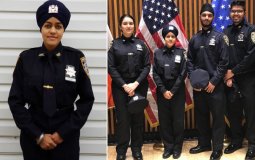Khalra’s investigation into extrajudicial murders attracted the attention of the United Nations.
Cartoonist Vishavjit Singh has developed a one-of-a-kind style for Sikh Captain America. In contrast to how the literary hero is typically portrayed, he wears a turban, has a long beard, wears spectacles, and has brown skin.
During the Delhi Riots, Mohinder Singh took extraordinary measures to protect the citizens who lived in one of the neighborhoods that were severely damaged.
Ranjit Singh represented a different, more enlightened, more inclusive model of state-building, and a much-needed path.
A life-size bronze statue of Maharaja Ranjit Singh, the 19th-century founder of the Sikh kingdom of Punjab, was unveiled in the historic Lahore Fort to thunderous applause from history aficionados on 27 June 2019.
Jagmeet Singh, the newly elected leader of the federal New Democratic Party, won people's hearts by handling an ignorant critic with maturity when he was accosted at the Atwater Market, Montreal, and told to remove his turban.
According to the results of a poll conducted by BBC, Maharaja Ranjit Singh was the most influential world leader.
A six-year-old was given the assignment to write about how his family celebrates their holidays in December. He chose the topic Shahadat of Sahibzade, which depicted the martyrdom of the four sons of Guru Gobind Singh Ji. When asked why he chose this topic, the child smiled and said,
The NYPD has somewhat less than 2,000 Sikh police officers, ten of whom are women, but just one, Gursoch, wears a turban.
Gursoch Kaur, a 22-year-old Indian-American, is the first Sikh woman in the NYPD to wear a turban. After graduating from the New York Police Academy, she was the first turban-wearing recruit to join the police. There are slightly under 2,000 Sikh police officers in the NYPD, ten of whom are women, but only one, Gursoch, wears a turban.
During the coronavirus lockdown, a grandfather who has been given the nickname, 'The Skipping Sikh' encouraged folks to pick up a rope and keep exercising. Rajinder Singh, 73, is complying with the UK lockdown, but he, like others his age, self-isolated at home to slow the spread of the Covid-19 virus.
